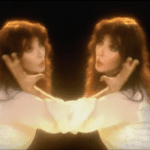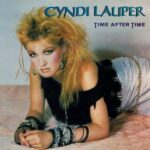The BBC, especially in the 20th century, maintained strict content standards—regulating language, politics, religion, sexuality, and drug references. What might seem conservative now reflected a different era of public broadcasting. Below, I’ve curated notable cases where music collided with controversy, and the BBC stepped in.
1. D‑Mob – We Call It Acieed
Why it was banned: The BBC pulled this 1988 acid‑house anthem, concerned that its repetitive “Acieeed!” hook and rave imagery glorified LSD and similar drugs
2. The Shamen – Ebeneezer Goode
Why it was banned: This cheeky rave‑era single was taken off BBC playlists for its sly drug‑culture wordplay (“Eezer Goode… E’s are good”), though the ban was later lifted when the song topped the charts.
3. The Beatles – A Day in the Life
Why it was banned: The BBC deemed the lyric “I’d love to turn you on” as an endorsement of drug use. It was banned from broadcast starting 20 May 1967
4. Heaven 17 – (We Don’t Need This) Fascist Groove Thang
Why it was banned: Because it named Ronald Reagan a “fascist god in motion,” the BBC feared it could be libelous. The BBC’s legal team prevented it from airplay in 1981.
5. Sex Pistols – God Save the Queen
Why it was banned: Released during Queen Elizabeth II’s Silver Jubilee in May 1977, this anti-monarchy anthem—calling the monarchy a “fascist regime”—was deemed to be in “gross bad taste.” The BBC banned it from all airplay.
6. Wings – Give Ireland Back to the Irish
Why it was banned: Paul McCartney’s 1972 single about British troops in Northern Ireland was too politically inflammatory. It was banned by the BBC, Radio Luxembourg, and the ITA.
7. Don Cornell – Hold My Hand
Why it was banned: In 1954, the BBC objected to the lyric “This is the kingdom of heaven,” considered irreverent religious imagery. Cornell overdubbed the line as “wonder of heaven” to meet broadcast standards.
8. Cole Porter – Love for Sale
Why it was banned: The 1930 jazz ballad’s depiction of prostitution (“Love for Sale”) was too risqué for early‑BBC sensibilities—it was banned from airwaves.
9. Cliff Richard – Millennium Prayer
A spoken‑word prayer set to the tune of “Auld Lang Syne,” released in 1999. The BBC declined to playlist it, deeming it overly religious and not contemporary enough—Richard himself expressed disappointment, but the ban continued.
10. Andrew Lloyd Webber & Tim Rice – Jesus Christ Superstar
The album version (1970) was initially banned on grounds of promoting blasphemy—the BBC’s concern was that dramatizing Jesus’s crucifixion in pop/rock form was sacrilegious
11. Louis Armstrong – Mack the Knife
In 1956, the BBC placed a moratorium on Armstrong’s version of this dark, mordant jazz classic, citing its lurid murder-themed lyrics as inappropriate for public broadcast
12. The Shangri-Las – Leader of the Pack
This teen‑tragedy tale of a biker’s death was banned in the UK for allegedly glorifying juvenile delinquency and reckless behavior among youth
13. Vera Lynn – We’ll Meet Again
Although not widely publicized as a ban, the BBC reportedly avoided playing this 1939 wartime classic during certain modern broadcasting shifts due to its overly sentimental tone in peacetime programming
14. Bing Crosby – I’ll Be Home for Christmas
Banned during WWII (circa 1943) because BBC censors felt its wistful lyrics—“if only in my dreams”—would damage troop morale by reminding soldiers of home
15. Lulu – Boom Bang-a-Bang
Despite winning Eurovision in 1969, the song was blacklisted by the BBC during the 1991 Gulf War as being too frivolously upbeat for war‑time programming.
16. Tears for Fears – Everybody Wants to Rule the World
During the first Gulf War (August 1990 – February 1991), the BBC banned this song due to its political themes and concerns it might strike the wrong tone amid conflict
17. Robin Thicke – Blurred Lines
While not officially BBC-banned, the track was pulled from daytime TV ads in 2013 and removed from many UK public venues (e.g., universities) amid accusations it glorified rape culture. BBC Newsbeat ran multiple reports on its censorship in ads and campaigns
And finally…
These bans say more about the BBC’s editorial standards at the time than they do about the songs themselves. Lyrics that once raised eyebrows or triggered outrage often seem harmless today, and some of these tracks eventually made it back onto the airwaves.
It’s a reminder that culture shifts, and so do the institutions that try to keep up with it. What was once considered dangerous, offensive or inappropriate can end up feeling pretty tame in hindsight. Still, each of these songs tells us something about the moment it came from and the lines it dared to cross.





